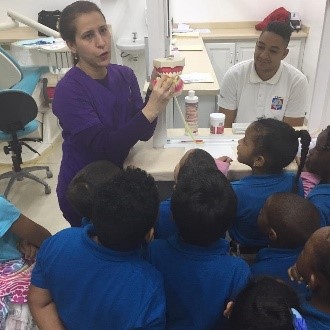Holy Pots and Pans!
Every cooking pot in Jerusalem and in Judah will be holy to the LORD of hosts; and all who sacrifice will come and take of them and boil in them… Zechariah 14:21
Then the Lord said to him, ‘Take off your sandals, for the place where you are standing is holy ground. Acts 7:33
Holiness is one of TeachBeyond’s Core Values. We are called to be set apart, and to disciple our students to the same. But what does that mean for us practically in the classroom? How does this value impact us as teachers?

The Bible speaks of holiness in a myriad of ways. There are holy pots and pans, holy terrain, and a host of other holy items which are material, mundane, and objective…a book, a day, a person. But how can an object be holy? Can a piece of real estate have moral perfection or a day, November 4th, be pure? What does it mean to be holy?
The Greek word gadowshis is translated “holy” and it means set apart, cut off from, totally different from all that is profane or unclean. Thus to be holy is to be set apart for God, cut off from and different from the ways of the world. We are set apart or cut off as an offering to God–our full selves are totally consecrated to Him. I no longer live for myself but live wholly for God.The pot is no longer a utilitarian dish, but one set aside to use for God. A holy day is a day cut off from the rest of the week and set aside exclusively for God. A holy person is one who knows he/she is not his/her own, he/she has been bought with a price[1].
Holiness is not the outcome of perfect living, sin management, rule following or right doctrine. It emanates from a stark realisation of our broken human condition and our embrace of the completed work of Christ on the cross. This is what should drive our interactions with students. This should be the basis of our classroom management plans and discipline policies. When your students look at you, do they see a “perfect godly example” or do they see a teacher who knows they are in need of a Saviour and that His name is Jesus Christ?
Tim Keller offers the following suggestion, “To the degree that you see Him [Christ] giving himself away for you, to that degree you give yourself away to live for Him. Look at it until it makes you holy.” With this in mind, may I suggest you meditate on holiness as a core value by a prayerful and reflective reading of Colossians 2?
Transformational education elicits a response to learning. It asks the learner to do something with the information and content of what they have been studying. As you meditate on the Word, what response are your students seeing? We’d really like for you to share this with us so we can learn along with you.
May we become holy as He is holy!
Helen Vaughan, PhD
Director of School Services
TeachBeyond Global
[1] 1 Cor. 6:19
Photo Credits: Pots. Prayitno / Thank you for (12 millions +) view Flickr via Compfight cc.
 Register Now for the K-12 School Leadership Program
Register Now for the K-12 School Leadership Program
This course is free for any TeachBeyond member seeking to learn more about what it takes to be a school leader. To find out more about the program or to register visit the K-12 School Leadership web page.



